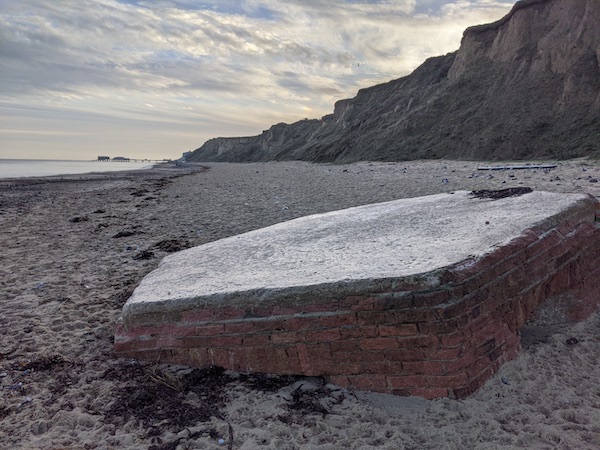
As the pandemic shatters my sense of time, I look for new ways to define it. Normally, I track the year by external events – the Brighton Fringe, Christmas parties, birthday parties &c. The usual markers have disappeared, so that things like moon phases and sunrise and tides have become more important. Back in the summer, I became obsessed with the fact that I could see certain planets with my naked eye. (I must have learned about this on my astrophysics degree courses, but there is a difference between facts and knowledge). As the weather has grown cold, I’ve become more aware of the seasons. We are deep in Winter, but the daffodils are growing tall already.
Life meanders like a path through the woods. We have seasons when we flourish, and seasons when the leaves fall from us, revealing our bare bones. Given time, they grow again.
I’m trying to buy fewer cheap books on Amazon, but Katherine May’s Wintering stood out. It’s an odd and elegant book. The writing is very much in the style of memoir/nature writing and there is an element of the non-fiction quest, where several people are interviewed around a theme. May admits “When I set out to write this book, I fully intended to do more“, travelling the world and interviewing experts. It’s a stronger book for the fact that she didn’t. Instead, this is a more personal book, full of deep wisdom about how wintering affects a person.
I began to get a feel for my winterings: their length and breadth, their heft. I knew that they didn’t last forever. I knew that I had to find the most comfortable way to live through them until spring.
For May, wintering is a metaphor for dark times in life, and May gently draws out the comparison with how we survive winter to how we survive these dark times in our own lives. “Wintering is a season in the cold. It is a fallow period in life when you’re cut off from the world, feeling rejected, sidelined, blocked from progress, or cast into the role of an outsider.” It’s a book about how to retreat. As May writes, “I have learned how to winter the hard way. It’s a skillset, of sorts.”
There are gaps in the mesh of the everyday world, and sometimes they open up and you fall through them into Somewhere Else. Somewhere Else runs at a different pace to the here and now, where everyone else carries on. Somewhere Else is where ghosts live, concealed from view and only glimpsed by people in the real world… Perhaps I was already teetering on the brink of Somewhere Else anyway; but now I fell through, as simply and discreetly as dust sifting between the floorboards. I was surprised to find that I felt at home there. Winter had begun.
Wintering is the first book I’ve read in 2021, and was the perfect companion at the start of a fearful new year. It’s a reminder that I should take things slow, that these are hard times, but that we will get through them.
Here is another truth about wintering: you’ll find wisdom in your winter, and once it’s over, it’s your responsibility to pass it on. And in return, it’s our responsibility to listen to those who have wintered before us. It’s an exchange of gifts in which nobody loses out.
Recently, the seafront has felt uncomfortably busy. Rather than walk there, I’ve been pacing the parks inland. I’ve taken solo daily exercise walking laps of Hove Recreation Ground. A couple of times recently, I’ve walked with friends around St. Anne’s Well Garden. Much of the ground here is bare, reduced to mud. The squirrels scamper, patting the ground, looking for caches of food. Someone told me that squirrels have little memory for their stores, that they recover them more by chance than instinct. In St Anne’s Well Garden the squirrels are almost tame, and will sometimes walk up to people, walkers without dogs, to see whether by chance they have any food to offer.
But we are brave, and the new world awaits us, gleaming and green, alive with the beat of wings. And besides, we have a kind of gospel to tell now, and a duty to share it. We who have wintered have learned some things.